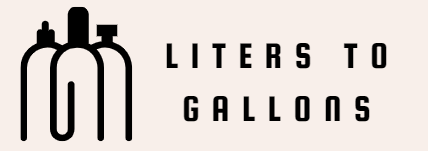Formula to convert 70 gallons to liters is to multiply 70 by 3.75841178 (this is the value for 1 gallon to liter).
Convert 70 Gallons to Liters results
70 x 3.78541178 = 264.9788246
70 gal = 264.98 l
It’s simple, the answer for 70 gallons is two hundred sixty-four point nine eight liters.
Find out right now how to convert 70 gallons to liters
For someone who is not familiar with the concept of converting between units of measure such as gallons and liters, we will try to explain how to convert 70 gallons to liters. At first it may seem a little technical, but it is very useful to understand how the quantities of liquids are measured and compared in different parts of the world.
How is it calculated?
First of all, the gallon is a unit of volume used mainly in the United States and the United Kingdom.
There are two main types of gallons: the American one is about 3.785 liters and the British imperial one which is about 4.546 liters.
These differences are due to the history and evolution of measurement standards in each country.
Instead, the liter is a volume measurement unit in the metric system, used in most parts of the world to measure liquids.
For the US gallon:
1 US gallon = 3.785 liters.
70 US gallons will be: 70×3.785=265.95 liters
For the British Imperial Gallon:
1 British imperial gallon = 4.546 liters.
70 British imperial gallons will be: 70×4.546=318.22 liters
Uses of conversion
It is important to understand these conversions because they help us compare and evaluate quantities of liquids in a standardized and universal way.
Various approaches
In international trade, when we refer to large quantities of liquids, it is more than important to have a common unit to facilitate transactions and avoid calculation errors.
In the automotive industry, where fuel efficiency is essential, the most accurate knowledge of the consumption in liters helps us to evaluate the performance of the vehicles.
In agriculture, where we manage resources such as water and pesticides, accurate volume calculation helps to use them more efficiently and sustainably.
